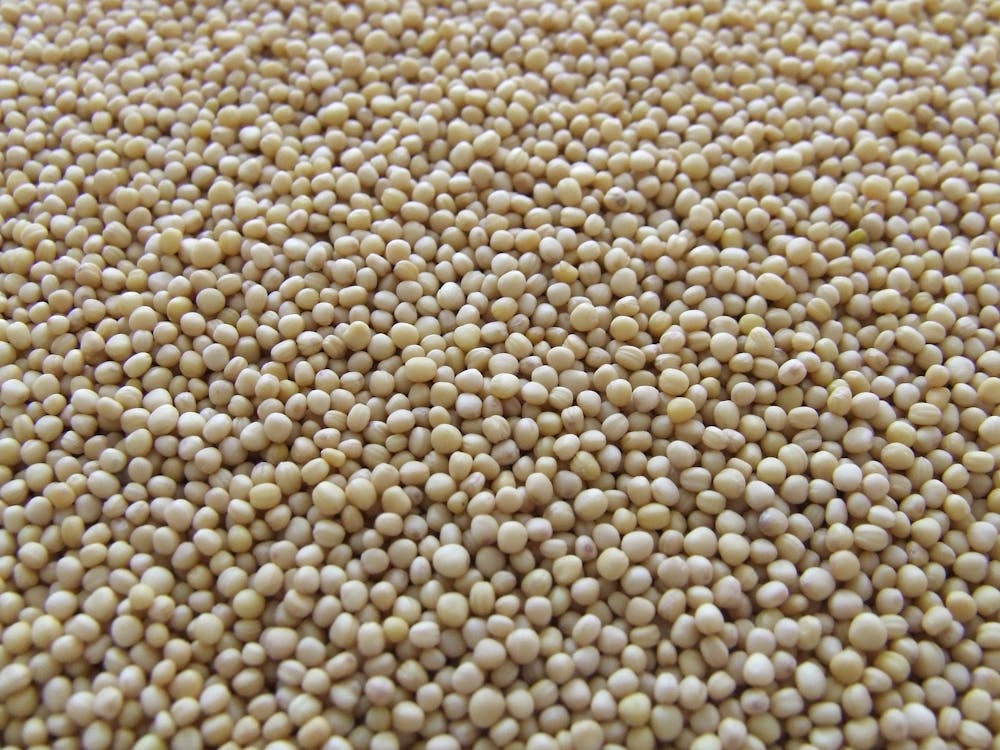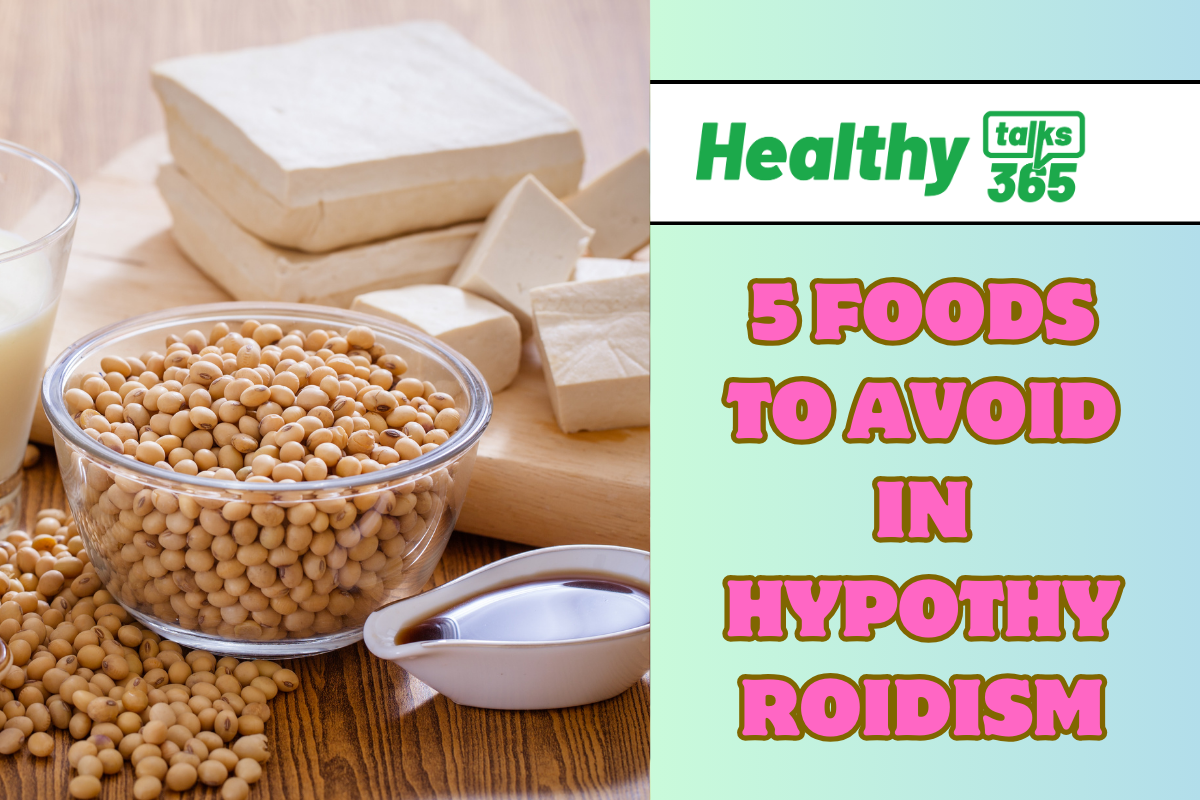5 FOODS TO AVOID IN HYPOTHYROIDISM
1. Soy products should be avoided in Hypothyroidism
There is ongoing debate and mixed evidence regarding the consumption of soy products in individuals with hypothyroidism. Soy products, such as tofu, soy milk, and soybeans, contain compounds called isoflavones, which are classified as phytoestrogens. Some studies suggest that isoflavones may interfere with thyroid hormone synthesis and absorption, potentially exacerbating hypothyroidism symptoms.
However, the evidence is not conclusive, and many experts believe that moderate consumption of soy products is safe for individuals with hypothyroidism, especially if their thyroid function is well-controlled with medication. It’s essential for individuals with hypothyroidism to consult with their healthcare provider or a registered dietitian to determine the appropriate intake of soy products based on their individual health status and medication regimen.

2. Cruciferous vegetables interfere with thyroid functioning
Cruciferous vegetables, such as broccoli, cabbage, cauliflower, kale, and Brussels sprouts, contain compounds known as goitrogens, which can interfere with thyroid functioning in some individuals. Goitrogens have the potential to inhibit the uptake of iodine by the thyroid gland, leading to decreased thyroid hormone production and potentially exacerbating thyroid-related conditions, particularly in individuals with iodine deficiency or thyroid disorders.
However, it’s important to note that cooking cruciferous vegetables can deactivate some of the goitrogenic compounds, reducing their potential impact on thyroid function. Additionally, the consumption of cruciferous vegetables is generally considered safe for most individuals when consumed in moderate amounts as part of a balanced diet.
Read Also:
Healthy Foods For Keeping Healthy Weight In Winters Cold
3. It is beneficial to avoid Gluten in hypothyroidism
For individuals with hypothyroidism, there is some evidence to suggest that avoiding gluten may be beneficial. Gluten is a protein found in wheat, barley, and rye, and some studies have shown a potential link between gluten intolerance or celiac disease and autoimmune thyroid disorders, such as Hashimoto’s thyroiditis, which is a common cause of hypothyroidism.
Additionally, some individuals with hypothyroidism may also have undiagnosed celiac disease or gluten sensitivity, which can further contribute to digestive issues and nutrient absorption problems. Therefore, avoiding gluten-containing foods or following a gluten-free diet may help alleviate symptoms and improve overall well-being in some individuals with hypothyroidism, particularly those with autoimmune thyroid disorders.
4. Highly processed foods cause thyroid dysfunction
Highly processed foods, often high in refined sugars, unhealthy fats, and artificial additives, have been associated with an increased risk of thyroid dysfunction. These foods can contribute to inflammation and oxidative stress in the body, which may interfere with thyroid hormone production and regulation.
Additionally, highly processed foods are often low in essential nutrients such as vitamins, minerals, and antioxidants, which are crucial for thyroid health. Moreover, the excessive consumption of processed foods may lead to weight gain and metabolic imbalances, further exacerbating thyroid dysfunction. Furthermore, some processed foods contain additives such as bromine, which can interfere with iodine absorption and disrupt thyroid function. 
Read Also:
Focus While Studying: 10 Proven Methods
5. Consumption of Iodine should be avoided in case of hypothyroidism
Hypothyroidism often results from inadequate iodine intake, as iodine is a key component of thyroid hormones. However, the relationship between iodine and hypothyroidism is complex. While iodine deficiency can indeed lead to hypothyroidism, excessive iodine intake can also exacerbate thyroid dysfunction, particularly in individuals with autoimmune thyroid disorders such as Hashimoto’s thyroiditis.
Therefore, it’s important for individuals with hypothyroidism to achieve an appropriate balance of iodine intake. In cases of iodine deficiency, supplementing with iodine or consuming iodine-rich foods such as iodized salt, seafood, and dairy products can help support thyroid function. However, individuals with autoimmune thyroid disorders should be cautious about iodine supplementation, as it may trigger or worsen thyroid inflammation.




